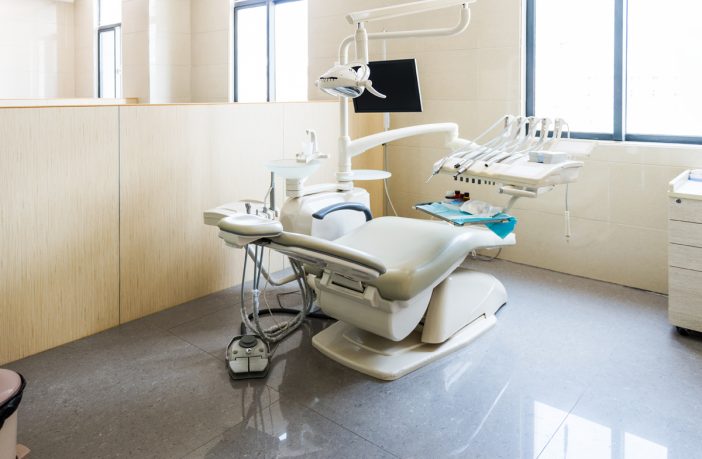If you are a dentist thinking of selling your dental practice, or buying the practice of another dentist, you may
feel overwhelmed and unsure of what is involved in the process. You do not know what to focus on or where to begin. This article will provide some guidance to dentists, like you, on some of the key issues to consider in the sale or purchase of a dental practice.
At the outset, a selling dentist should identify the reasons he wants to sell his practice or the goals he wants to achieve. Does he want to retire and leave the practice because of advancing age or infirmity? Does he want to relinquish the burdens and responsibilities of operating a practice or the ownership of the practice’s real estate, but still wants to continue working? Does he have sufficient financial resources to cease practicing or does he need to continue working as a dentist for the buyer? Is he concerned about continuity of care for his patients or jobs for his staff? The prospective buyer should also consider his objectives. Where does he want to practice and what type of practice does he want to acquire? Does he want the selling dentist to continue to work for him after the sale, for how long and on what terms? Once the selling dentist or prospective buyer has determined his respective objectives, he should focus on other important considerations, such as those discussed below.
What is the dental practice worth?
The dentist may want to use an accountant or broker knowledgeable in valuing dental practices to determine its value. Different valuation methodologies may be used which look at practice profit, gross revenue, location, or a comparative review of the price paid for other similarly situated practices. A valuation will give the selling dentist or buyer a range for the purchase price that he might expect in the sale or purchase of a particular practice.
How will the dental practice sale be structured?
Although the sale of the practice may be structured as a sale of the stock if the practice is a dental professional corporation (“PC”), or a sale of the membership interests if it is a dental professional limited liability company (“PLLC”), the most common structure is a sale of the assets of the dental practice. In this structure, the seller transfers only the assets of the practice to the buyer but retains ownership of the PC or PLLC until he later decides to dissolve it.
Buyers prefer an asset sale because it avoids transferring practice liabilities to the buyer and the need for the seller to protect and indemnify the buyer for such liabilities. For example, if the dental practice has pending malpractice or other lawsuits, potential over-payment claims from insurers or patients, or tax or other liabilities, then such suits, claims and liabilities would remain with the dental PC or PLLC. In a stock sale, they would automatically be “inherited” by the buyer, but in an asset sale, the buyer would not automatically acquire such claims and liabilities, and the parties could expressly agree that the seller would retain them.
After the purchase price of the dental practice is agreed upon, how will the buyer and the seller allocate the purchase price for tax purposes?
Buyers and sellers have competing interest in negotiating the purchase price allocations. Each the buyer and seller want to achieve the tax treatment that is most beneficial to him, but both parties must allocate the same amount of the practice’s purchase price on their respective tax returns. Therefore, the allocations of the purchase price should be agreed upon in the practice sale agreement. The seller would typically prefer to allocate a greater portion of the purchase price to those practice assets that give the seller a greater tax benefit, such as good will and leasehold improvements, which are accorded long-term capital gains tax treatment and are taxed at a lower rate than ordinary income. The buyer, on the other hand, would likely prefer to allocate a greater portion of the purchase price to the dental supplies, equipment and furniture, which have a shorter depreciation/amortization period that favors the buyer for tax purposes. The parties may want to arrange for a valuation of the assets and negotiate the allocation with the assistance of their accountants, taking care to avoid proposing an artificially low allocation for certain assets if there is no solid basis to support it.
Will the outstanding accounts receivable (“ARs”) be retained by the selling dentist or sold to the
buyer? Who will collect the seller’s ARs after the sale of the dental practice?
If the seller retains the ARs, this will provide a source of continuing revenue for him for a limited period after
the sale, but he will have to employ staff or a billing company to bill and collect the ARs after the practice is
sold, or arrange for the buyer to do that for an agreed-upon fee. Buyers often prefer to take on the obligation
to collect the ARs to avoid an overly aggressive collection approach by the seller, which might sour the
patient’s future relationship with the dental practice.
If the ARs are included in the sale of the practice, this will increase the purchase price of the practice and
transfer the responsibility of billing and collection of the ARs to the buyer. It will also provide the buyer with
cash flow to help fund the operations of the practice after the sale, and allow the buyer to determine how
zealous to be in the collection process. However, the buyer will likely try to negotiate a discount in the value of the ARs, paying the seller less than their face value as part of the purchase price, because the success of
collecting the outstanding ARs is often unpredictable, and will likely depend upon the age of the ARs, the
practice’s historical collection rate, and other factors.
How will the buyer and the seller handle “work-in-progress” and “retreatment” issues following the
sale of the dental practice?
Dentists are often in the process of performing a multi-stage procedure, such as placement of an implant or a dental crown or bridge, which is not yet completed when the closing of the practice sale occurs. The fee for
such work-in-progress is sometimes paid at the conclusion of the procedure.The buyer and the seller should
determine in their agreement who will complete the work and what portion of the payment will be paid to each. In addition, buyers and sellers are typically concerned about patients who return after a sale of the dental practice complaining about defective or failed dental work performed by the seller, and expecting that the buyer will repair the problem at no or reduced cost. This issue needs to be expressly covered in the practice sale agreement, including who will be responsible for the repair, what the cost will be to the patient, whether the buyer will be required to make the repair for a discounted fee and who will be required to pay such fee, who will pay for the materials and any lab fees, what financial obligation the seller will retain, and the time period after the sale during which the buyer and/or seller will have the repair obligation.
Will the seller’s employees be part of the dental practice transfer to the buyer and what obligations will
the seller have to the employees?
It is often desirable to transfer the employees of a dental practice, such as hygienists, receptionists and office managers, to the buyer to maintain the good will of the practice and good relationships with prior patients. Such a transfer of employees would be subject, however, to the approval of the buyer and the employees. The parties should include in the practice sale agreement which employees will be offered employment with the buyer and under what terms and conditions. It should not be assumed that any express or implied prior understandings or agreements between the seller and his staff, including those relating to scheduled days and hours, pay rates, raises, benefits, vacation or other leave time, would be acceptable to the buyer. Typically, the seller would terminate the staff of the practice as of the transfer date, and the seller would be responsible for any compensation, bonuses, benefits, vacation, or other leave time that the seller’s employees had accrued prior to the transfer date. The agreement should make this clear, and the buyer would not bear any responsibility for the foregoing, unless expressly agreed to by the buyer in the agreement. The sale agreement should also include express provisions relating to successor liability with regard to any labor law violations that may have occurred prior to the transfer. A selling dentist should also be mindful of any “advance” paid vacation or other paid leave that may be taken by employees prior to the date of transfer, before such leave time has actually been earned or accrued by the employees. There will be no way for the seller to recover such time or the compensation paid, after the sale occurs.
What will happen to the seller’s patient dental records?
Typically, the custody of the patients’ dental records will be transferred to the buying dentist as part of the
practice transfer. Because of applicable state and federal requirements, patient dental records must be
retained for certain time periods and confidentiality must be maintained. Notice should be given to the seller’s patients of the transfer of custody of the dental records to the buyer and how the patients may access and receive a copy of their dental records following the transfer. The buyer should not access a dental record of a patient that is transferred to the buyer’s custody until the buyer obtains consent from such patient. The transfer of dental records by a selling dentist to a buyer is advantageous to both the seller and the buyer since it relieves the seller of the responsibility and costs of (i) maintaining the records for the number of years required by applicable state law, and (ii) supplying a copy of the records to patients who may wish to access their records in the future. Buyers, on the other hand, have the advantage of having ready access to the records of patients who chose to continue dental treatment with the buyer. Special issues may need to be considered if the seller’s dental records are maintained in electronic format to assure that the buyer can access and maintain such records and what the costs would be.
What type of notice should be given to the patients when a dentist sells his practice?
The buyer and the seller should agree upon the text and signatory of a letter to the seller’s patients at the
time of the transfer to notify the patients of the seller’s retirement or other departure from the dental practice or the continuation of the seller in the practice of the buyer. The practice sale agreement should also cover who will be responsible for, and bear the cost of, sending the letters, as well as when and to which group of patients the letters will be sent.
How can a buyer be protected from competition or interference with the dental practice by the seller
after the transfer?
Typically, the sale agreement would impose a non-compete restriction on the seller preventing him from
engaging in the practice of dentistry within a specified reasonable geographic distance from the seller’s
practice location(s) for a reasonable period of time after the transfer date. Other restrictive covenants may
also be imposed on the seller in the agreement, such as non-solicitation of the patients and employees, and
requirements for confidentiality of practice information. These restrictions are important to help protect the
buyer from adverse actions by the seller after the sale of the dental practice.
What will happen to the dental office upon a sale of a dental practice to a buyer?
A buyer will often want to acquire the office of the seller to maximize the retention of the seller’s patients and to avoid costs of establishing and outfitting a new office. The office may have been owned or leased by the seller. If owned, the seller may want to sell the office (or the building in which the office is located) to the
buyer as part of, or concurrently with, the sale of the dental practice, or the seller may want to lease the office to the buyer to maintain a rental income stream for the seller. If the buyer leases the office from the seller, he may want to reserve a right of first refusal to purchase the office if the seller later decides to sell. If the seller had leased the office from a third-party landlord but is able to assign the lease, the buyer may have to obtain the landlord’s consent to such an assignment, or enter into a new lease with the landlord. In some cases, the buyer already has an office in the seller’s area and does not want to acquire the seller’s office. The buyer may only want to acquire the goodwill of the seller’s practice and custody of the patient records, thereby incorporating the seller’s patients into the buyer’s existing practice.
What does a selling dentist do to start the process of the sale of his dental practice?
Whether a seller decides to work with a broker or markets his practice independently, he will need to gather
certain key information about his dental practice to share with prospective buyers. Nothing should be shared, however, unless the buyer first signs a Non-Disclosure and Confidentiality Agreement (“NDA”) to protect the seller’s practice information, regardless of the outcome of the negotiations or sale.
The seller should put together practice information about the number of active patients, the average number of new patients per month, the percentage of the practice’s patients that derive from dental insurance plans and the identification of such plans, information about the number and type of staff, along with their compensation and benefits, the practice’s tax returns for the prior three years, the outstanding accounts receivable and their age and collection history, identification of the assets that are to be included and excluded in the sale, and whether there are any items of leased equipment, any liens on practice assets, or practice liabilities. The seller should evaluate the buyer to determine whether the buyer has the financial
ability to meet the sale price and/or obtain financing. The NDA will also protect the buyer’s information,
which should include personal financial information. The buyer and the seller might also want to memorialize the key terms of a potential sale in a Letter of Intent (“LOI”) which although typically nonbinding, makes the fundamental deal terms clear so that it is more likely to avoid misunderstandings and miscommunications as the parties move forward with the drafting of specific transaction documents. Each of the buyer and seller should engage an attorney who is well versed in handling the sale of a dental practice. These attorneys will be able to prepare and negotiate the NDA, LOI, and other transaction documents, and assist the buyer and seller in the due diligence process of reviewing the dental practice.
If you have any questions, please contact
Ellen F. Kessler, Esq.
(516) 663-6522
[email protected]











